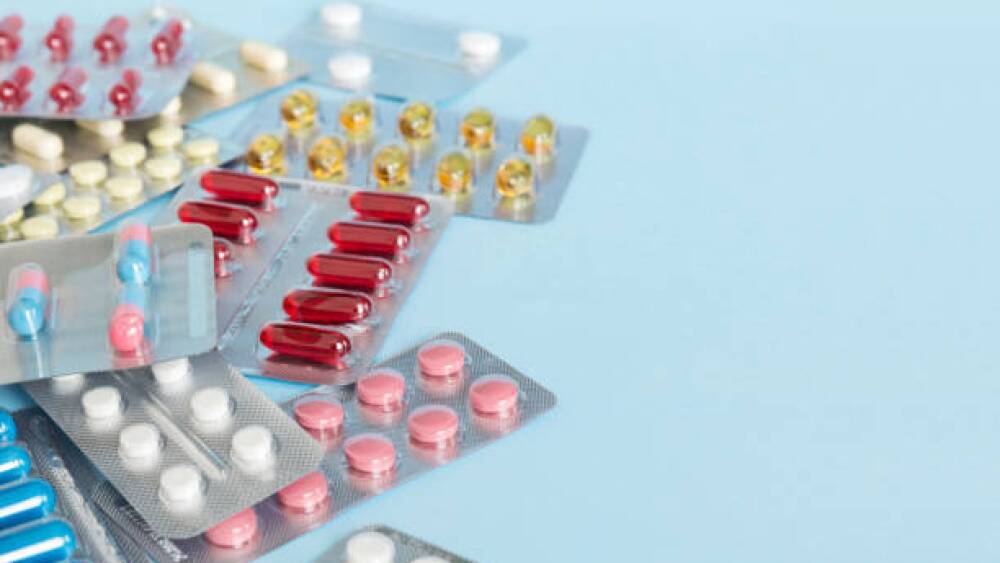PARIS, October 20, 2011 /PRNewswire/ --
- New findings from the pivotal TEMSO Phase III study presented today at the joint ECTRIMS / ACTRIMS Congress -
- U.S. FDA Accepts New Drug Application for Teriflunomide for relapsing forms of MS -
Sanofi (EURONEXT: SAN and NYSE: SNY) and its subsidiary Genzyme announced today new data from the pivotal TEriflunomide Multiple Sclerosis Oral (TEMSO) Phase III trial showing that once-daily oral teriflunomide significantly reduced annualized rates of relapses leading to hospitalization. New data also confirmed the safety profile and efficacy of teriflunomide over a six-year period after the initial randomization. A total of fifteen presentations on teriflunomide are on the program for the fifth joint triennial congress of the European and American Committee for Treatment and Research in Multiple Sclerosis (ECTRIMS / ACTRIMS) in Amsterdam, Netherlands.
The companies also announced today that the U.S. Food and Drug Administration has accepted for review Sanofi's new drug application (NDA) for oral teriflunomide as a potential therapy for people with relapsing forms of multiple sclerosis (MS). Sanofi expects to file an application for regulatory approval with the European Medicines Agency (EMA) in the first quarter of 2012.
"The new results of the TEMSO study show that both 7mg and 14mg doses of teriflunomide could reduce the severity of relapses measured through annual rates of relapses leading to hospitalization as well as deliver encouraging long-term results on safety and efficacy," said Professor Paul O'Connor, Director of the MS Clinic at St. Michael's Hospital, Toronto, Canada, and principal investigator of the TEMSO study.
New post-hoc analyses showed that teriflunomide-treated patients' annualized rate of relapses leading to hospitalization was significantly reduced by 36% (p=0.015) with 7 mg and by 59% (p<0.0001) with 14 mg compared with placebo. The risk of hospitalization per relapse was also significantly reduced by 43% (p<0.001) for the 14 mg dose and numerically reduced by 6% (p=NS) for the 7 mg dose. These analyses also showed teriflunomide significantly reduced the annualized rate of emergency medical facility visits (a visit to a medical facility/hospital for emergency care not resulting in an admission) by 42% (p=0.004) for the 14 mg dose and numerically reduced by 31% (p=NS) for the 7 mg dose vs placebo.
"The additional data presented at ECTRIMS further supports the potential of teriflunomide as a new once a day oral therapy that can significantly decrease the number of relapses requiring hospitalizations for patients suffering from this complex and unpredictable disease and who need safer and more effective therapeutic options," said Dr. Elias Zerhouni, President, Global Research & Development, Sanofi.
Long-term data on safety and efficacy of teriflunomide were also presented at this congress. The results from the extension of the TEMSO study showed that both doses of teriflunomide were well tolerated six years after the initial randomization, with a consistent safety profile to the core two- year study. The beneficial effects of teriflunomide on clinical and MRI endpoints reported in TEMSO also continue to be sustained over five years after the initial randomization.
In addition to the TEMSO extension, the follow up to the Phase II long-term efficacy and safety study was presented. These new findings showed that teriflunomide was well tolerated up to nine years of continuous exposure, with a safety profile consistent with that reported during the 36 weeks of initial double-blind treatment. The reductions in disease activity observed with teriflunomide in the initial study were maintained for up to eight years of treatment.
About TEMSO study
TEMSO was a two-year randomized, double-blind, placebo-controlled multinational study that included 1,088 people with relapsing forms of MS from 126 centers in 21 countries. Trial participants were 18-55 years of age, with an Expanded Disability Status Scale (EDSS) of 5.5 or less, and had at least one relapse in the previous year or at least two relapses in the preceding two years. Trial participants were randomized to placebo or teriflunomide, 7mg or 14mg, once daily and followed for 108 weeks. The primary endpoint was annualized relapse rate, defined as the number of confirmed relapses per trial participant year; a relapse is a new or worsening of a previous clinical sign or symptom. The key secondary endpoint was the time to sustained disability progression, measured by the EDSS. Disability progression was defined as an increase from baseline of at least 1.0 point on the EDSS persisting for at least 12 weeks. Change from baseline in total lesion volume was also a key prespecified MRI endpoint in the study. Safety and tolerability evaluations were based on adverse events, physical examinations, vital signs and laboratory investigations. A long-term extension of TEMSO is ongoing.
About Teriflunomide
Teriflunomide is an immunomodulatory, disease-modifying oral drug with anti-inflammatory properties, and is under investigation for the treatment of relapsing forms of MS. Teriflunomide blocks the proliferation and functioning of activated T and B lymphocytes - which are thought to be especially damaging in MS - by selectively and reversibly inhibiting a critical mitochondrial enzyme. With nine years of continuous use in a Phase II extension, teriflunomide has the longest clinical experience of any investigational oral MS therapy. In addition to the TEMSO trial, two other Phase III trials, TOWER and TENERE, are ongoing in people with RMS. A Phase III study, TOPIC, is also underway in early MS or CIS (clinically isolated syndrome). Teriflunomide is also being evaluated as an adjunct therapy to interferon- in the Phase III TERACLES trial.
(*) Aubagio is the proprietary name submitted to health authorities for the investigational agent teriflunomide.
About Multiple Sclerosis
Today more than 2,000,000 people around the world suffer from MS, a chronic autoimmune disease that affects the central nervous system - the brain, spinal cord and optic nerves. In MS, immune cells called lymphocytes mistakenly attack myelin, the fatty "insulation" that surrounds and protects nerves, resulting in abnormal nerve transmission and MS symptoms such as fatigue, weakness, walking and balance problems, vision problems, pain, spasticity and cognitive difficulties. MS is the most common disabling neurological disease in young adults after accidents, and is two to three times more common in women than in men. MS is usually characterized by relapses followed by periods of complete or incomplete recovery. There is no typical individual with MS, as the disease is a very variable condition and the symptoms depend on which areas of the central nervous system are affected. MS symptoms can vary from time to time and can change in severity and duration, even in the same person.The vast majority of people with MS - approximately 90 percent - are initially diagnosed with a relapsing form of MS.
Magnetic resonance imaging (MRI) is a common and important tool used to help establish a diagnosis of MS and monitor the course of the disease and effects of treatment. Providing a highly sensitive, non-invasive way to image the brain, spinal cord or, other areas of the body, MRI has made it possible to visualize and understand a great deal about the underlying pathology of MS.
About Genzyme, a Sanofi Company
One of the world's leading biotechnology companies, Genzyme is dedicated to making a major positive impact on the lives of people with serious diseases. Since its founding in 1981, the company has introduced breakthrough treatments that have provided new hope for patients. The company's areas of focus are rare genetic diseases, multiple sclerosis, cardiovascular disease, and endocrinology. Genzyme is a Sanofi company. Genzyme's press releases and other company information are available at http://www.genzyme.com .
Genzyme's Multiple Sclerosis business unit is responsible for the development of teriflunomide, along with the investigational MS therapy alemtuzumab.
About Sanofi
Sanofi, a global and diversified healthcare leader, discovers, develops and distributes therapeutic solutions focused on patients' needs. Sanofi has core strengths in the field of healthcare with seven growth platforms: diabetes solutions, human vaccines, innovative drugs, rare diseases, consumer healthcare, emerging markets and animal health. Sanofi is listed in Paris (EURONEXT: SAN) and in New York (NYSE: SNY).
Forward Looking Statements
This press release contains forward-looking statements as defined in the Private Securities Litigation Reform Act of 1995, as amended. Forward-looking statements are statements that are not historical facts. These statements include projections and estimates and their underlying assumptions, statements regarding plans, objectives, intentions and expectations with respect to future financial results, events, operations, services, product development and potential, and statements regarding future performance. Forward-looking statements are generally identified by the words "expects", "anticipates", "believes", "intends", "estimates", "plans" and similar expressions. Although Sanofi's management believes that the expectations reflected in such forward-looking statements are reasonable, investors are cautioned that forward-looking information and statements are subject to various risks and uncertainties, many of which are difficult to predict and generally beyond the control of Sanofi, that could cause actual results and developments to differ materially from those expressed in, or implied or projected by, the forward-looking information and statements. These risks and uncertainties include among other things, the uncertainties inherent in research and development, future clinical data and analysis, including post marketing, decisions by regulatory authorities, such as the FDA or the EMA, regarding whether and when to approve any drug, device or biological application that may be filed for any such product candidates as well as their decisions regarding labeling and other matters that could affect the availability or commercial potential of such products candidates, the absence of guarantee that the products candidates if approved will be commercially successful, the future approval and commercial success of therapeutic alternatives, the Group's ability to benefit from external growth opportunities as well as those discussed or identified in the public filings with the SEC and the AMF made by Sanofi, including those listed under "Risk Factors" and "Cautionary Statement Regarding Forward-Looking Statements" in Sanofi's annual report on Form 20-F for the year ended December 31, 2010. Other than as required by applicable law, Sanofi does not undertake any obligation to update or revise any forward-looking information or statements.
SOURCE Sanofi




